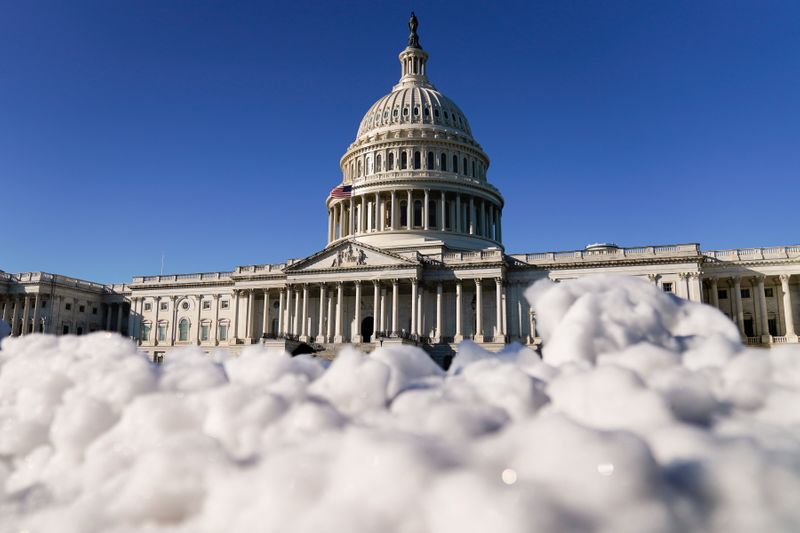Investing.com -- Congress is facing a critical deadline to fund the federal government's operations and avoid a shutdown.
Lawmakers must reach an agreement by September 30 to prevent such a disruption, with expectations leaning towards a deal materializing, albeit “likely not till the last minute,” according to Evercore ISI strategists.
“There’s little appetite on either side to have a shutdown five weeks before an election, and lawmakers with close races want to spend October on the campaign trail with few distractions from Washington,” strategists said in a Tuesday note.
Although a “relatively clean” continuing resolution (CR) ultimately gets passed, Speaker Johnson’s politics remain complicated, Evercore points out.
Johnson is aiming to distance himself from the internal conflicts that plagued his predecessor, Speaker McCarthy, especially as Republicans strive to maintain their majority. However, Johnson's leadership could be undermined if he appears overly accommodating to Democrats, which might jeopardize his position in the next term, assuming Republicans stay in control.
Complicating matters, former President Trump has advised Republicans against supporting a CR unless it includes new voter ID requirements, a demand that Democrats find unacceptable. Johnson has scheduled a vote for a six-month CR with these voter ID stipulations on Wednesday, risking further political strife.
Historically, government shutdowns have had a minor and short-lived impact on the macroeconomy. Nonetheless, they create significant disruptions for households and businesses and cast doubt on U.S. fiscal management.
“If there is a shutdown, perhaps the biggest market impact would be uncertainty arising from a lack of official economic data – most immediately, the next jobs report on October 4 could be postponed,” strategists continued.
As negotiations are expected to reach a climax next week, a key point of contention is the duration of the CR. Johnson has proposed a six-month CR, aligning with Republicans who believe they will have greater leverage next year. However, this is contested by Democrats and some Republican defense advocates who worry that a six-month CR would set up another funding battle too close to an April 30 deadline.
That deadline is important as it could trigger a 1% cut in discretionary spending compared to levels in the fiscal 2023 year (FY23) if a budget is not passed due to the terms set under the 2023 debt limit deal. This mechanism was designed to pressure Congress into passing appropriations bills, which they did for FY24 in March, but the outcome for FY25 remains uncertain.
